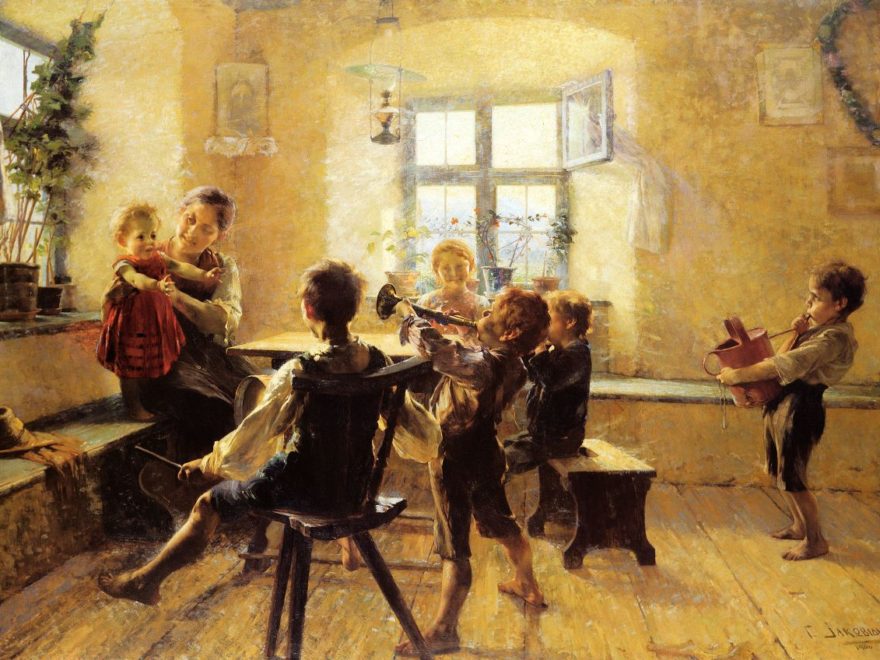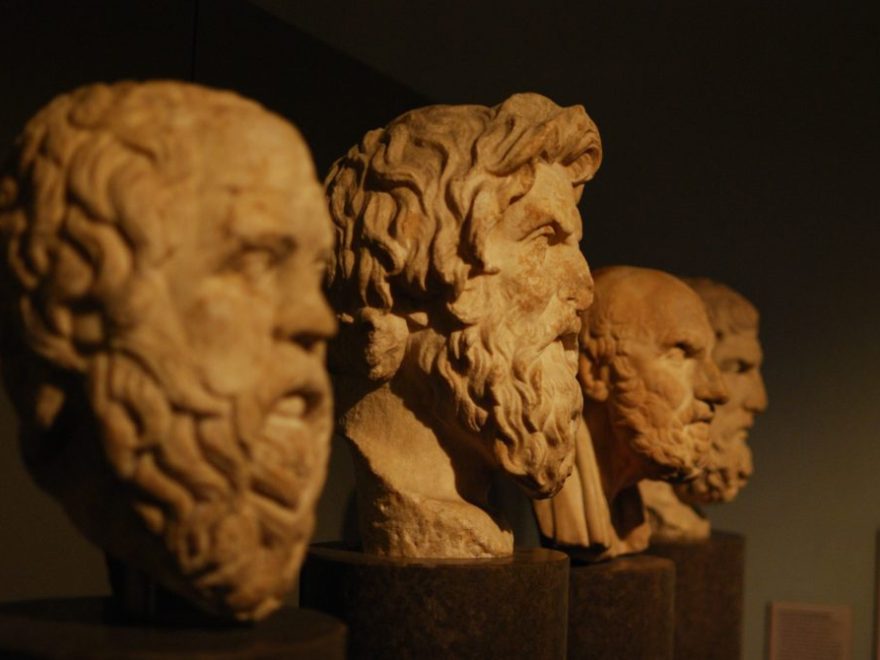Tag: Charlotte Mason
-

Summertime, and the Learning is Easy
Summertime has arrived. Gershwin’s song from Porgy and Bess is clearly on my mind, if you caught the allusion in my title. If you have a moment, watch Ella Fitzgerald’s soulful performance of “Summertime, and the Livin’ is Easy” in Berlin during the summer of 1968. You could listen to any number of recordings, but…
-

Habit Training during Online Distance Learning
Everything changed a couple months ago when school went online. At-home learning has caused every school to attempt schooling in new and creative ways. We can also get creative about habit training during online distance learning. I shared my new eBook on habit training in the classroom about a month before we stopped meeting in…
-

Education is Life: A Philosophy on Education
The study of education is the study of life. At least that’s the way it should be. Too often educational thought seeks precision in the use of the techniques and technology brought into the classroom. Have one’s lesson plans fully articulated all of the learning objectives spelled out in the curriculum? What is the new…
-

Charlotte Mason and the Liberal Arts Tradition, Part 2: Educating the Whole Person
What has Charlotte Mason to do with classical education? In my first blog in this series, I began exploring this question through a close reading of Kevin Clark and Ravi Jain’s The Liberal Arts Tradition: A Philosophy of Christian Classical Education. In this book, Clark and Jain offer a paradigm for understanding classical education as…
-

Charlotte Mason and the Liberal Arts Tradition, Part 1: Mapping a Harmony
“What has Athens to do with Jerusalem?” the church father Tertullian skeptically asked. Tertullian was writing at a time in which church leaders were weighing the pros and cons of mining the Greco-Roman philosophical tradition for insights they could utilize in the development of a distinctively Christian philosophy. Similarly, within the Christian classical school movement,…
-

The Flow of Thought, Part 7: Rediscovering Science as the Love of Wisdom
In this series we’ve been finding arguments for a classical education from the unlikely realm of positive psychology, particularly Mihalyi Csikszentmihalyi’s classic Flow: The Psychology of Optimal Experience. After connecting the concept of flow with Aristotle’s link between virtue or excellence and eudaimonia (happiness or flourishing), we’ve been racing through aspects of the liberal arts…
-

Charlotte Mason and the Power of Ideas
As Charlotte Mason observed, there is nothing quite like the experience of being struck by an idea. The experience is equivalent to being the recipient of some unexpected treasure. Ideas loosen our grip on holding a thin view of the world. They open our minds, especially through narration, to connections previously gone undetected and stir…
-

The Flow of Thought, Part 6: Becoming Amateur Historians
I’ve never been one for journaling. It’s not for lack of trying or admiration for the idea behind the practice. But keeping a journal and writing down my thoughts about myself or what I experienced that day just never caught on for me. I was almost tempted to say that it would have felt too…
-

Marketing, Manipulations and True Classroom Leadership
Earlier this fall I finished reading Simon Sinek’s Start with Why: How Great Leaders Inspire Everyone to Take Action. Besides being inspired and challenged in my own leadership, I was deeply taken with his vision for effective marketing or branding: the idea that starting with why the organization exists is the most effective way to…
-

Why Luther Believed Christians Should Study the Liberal Arts
What lies at the core of an authentically Christian education? Bible classes, faithful teachers, chapel services, certainly. How about the liberal arts? For many parents of faith, they aren’t so sure. After all, the liberal arts aren’t necessary for coming to faith or remaining in the fold. And in 2019, with a diversified economy, the…
